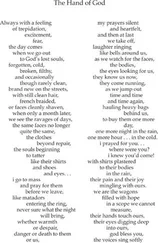Danielle Steel - Crossings
Здесь есть возможность читать онлайн «Danielle Steel - Crossings» весь текст электронной книги совершенно бесплатно (целиком полную версию без сокращений). В некоторых случаях можно слушать аудио, скачать через торрент в формате fb2 и присутствует краткое содержание. Год выпуска: 1987, ISBN: 1987, Издательство: Random House, Inc., Жанр: Старинная литература, на английском языке. Описание произведения, (предисловие) а так же отзывы посетителей доступны на портале библиотеки ЛибКат.
- Название:Crossings
- Автор:
- Издательство:Random House, Inc.
- Жанр:
- Год:1987
- ISBN:9780440115854
- Рейтинг книги:3 / 5. Голосов: 1
-
Избранное:Добавить в избранное
- Отзывы:
-
Ваша оценка:
- 60
- 1
- 2
- 3
- 4
- 5
Crossings: краткое содержание, описание и аннотация
Предлагаем к чтению аннотацию, описание, краткое содержание или предисловие (зависит от того, что написал сам автор книги «Crossings»). Если вы не нашли необходимую информацию о книге — напишите в комментариях, мы постараемся отыскать её.
Crossings — читать онлайн бесплатно полную книгу (весь текст) целиком
Ниже представлен текст книги, разбитый по страницам. Система сохранения места последней прочитанной страницы, позволяет с удобством читать онлайн бесплатно книгу «Crossings», без необходимости каждый раз заново искать на чём Вы остановились. Поставьте закладку, и сможете в любой момент перейти на страницу, на которой закончили чтение.
Интервал:
Закладка:
At six o'clock he left the Hotel Majestic, and went home to the Place du Palais-Bourbon, as he always did, although tonight he had left earlier than usual. He went into the kitchen, which now showed months of disuse. It didn't look like the same house where Liane had once lived with the children. The copper pots had turned dark, the stove no longer worked, and he kept almost nothing in the icebox. There was a thick coat of dust everywhere. And he really didn't care. He used it as a place to sleep. But tonight he sliced some cold sausage that he had bought, and munched on an apple. He made a few notes to himself before he drove out to Neuilly. And he looked around carefully as he started the car, but no one was watching.
He made the short drive without a problem. He had a special emblem on his car now, which told the German soldiers posted in the street that he worked with the government. And he parked the car two blocks from the house where he was going. He knocked twice, and then rang the bell. He was let in by an old woman who nodded and closed the door, and then walked him into the kitchen, where he descended a stairway to her basement. And there, together, they shoved aside a pile of old boxes to reveal the trap door to the tunnel that had been made. He crawled through it, as he had before, into the next house, where three men were waiting. One was a man with short gray hair, in workman's pants, a cap, and a black sweater. It was Moulin. He held out a hand to Armand as the other two watched. They had come with him from Toulon this time. These two were new, but Moulin was familiar.
“Hello, my friend.”
“It's good to see you.” Armand smiled. He only wished that he knew the man better. He was doing great things for France. He was already a hero of the Resistance.
“It's good to see you too.” Moulin glanced at his watch. He didn't want to waste time. He had half an hour before he was to return to Toulon, he had already completed his work in Paris. And that night, he would sneak back across the channel to London. “I have a proposition to make to you, De Villiers.” Armand was surprised when he heard Moulin's proposal. “How would you like to come to London?”
“But why?” Nothing he did could be of use there. He was important where he was. “To what purpose?”
“A good one. To save your life. We have reason to believe that they suspect you.” Armand nodded. He showed no fear.
“Why do you think that?”
“Some reports we intercepted from the Germans.” Two guards of the High Command had been killed the week before, and they had been carrying the commanding officer's briefcase, which had disappeared into the hands of the Resistance. Von Speidel had been livid.
“Was that you last week?” Armand inquired quietly.
“Yes. There were papers that lead us to think … we're not sure … but we don't want to wait until it's too late. You should go now.”
“When?”
“Tonight. With me.”
“But I can't….” He looked frightened, he still had half a dozen important projects. There was a Rodin piece he wanted to spirit into Provence, a Jewish woman and her son hiding in a basement, a priceless Renoir lying hidden beneath a building. “It's too soon. I need time.”
“They may not give it to you.”
“But are you sure?”
Moulin shook his head. “Not yet. There is nothing definite. But your name was mentioned in two reports. They are watching.”
“But you got those reports, Speidel didn't.”
“We don't know who had seen them before that. Therein lies the danger.” Armand nodded, and then he looked hard at Moulin again.
“What if I stay?”
“Is it worth it?”
“For the moment, yes.”
“Can you finish what you're doing quickly?”
Armand nodded slowly. “I can try.”
“Then do it. I'll be back in two weeks. You'll come then?”
Armand nodded, but there was something tentative in his face, which Moulin recognized at once. There were others like him; those who couldn't bear to give up the fight—beyond reason.
“Don't be a fool, De Villiers. You will serve France better if you stay alive. You can do a great deal from London.”
“I want to stay in France.”
“You can come back. We'll give you new identity cards and put you in the mountains.”
“I'd like that.”
“All right.” Moulin stood up and the two men shook hands, then Moulin swiftly crossed the room and left. He exited by the same route that Armand had come, and a moment later Armand followed. He knew that they would be gone when he reached the street. Moulin always disappeared like the wind. But not tonight. As Armand walked to his car there was a sudden movement near him, and then suddenly armed soldiers leaped out from their hiding places with guns blazing. They didn't get a clear view of him, but in the distance there were three men running. Armand pressed himself quickly against a wall and the soldiers flew past him. There were more shots in the night, and Armand disappeared into a garden, where he hid, and he began to feel a dull throbbing in his leg, and when he touched it, it was damp with blood. He had been wounded.
He waited until there were no more sounds, and he made his way carefully out of the garden, praying that Moulin had fled, as he always did. Armand returned to the house where they had met, and the people there took him in and bandaged his leg. At midnight he went home, but his whole body was trembling, and he wished desperately that he still had some brandy. And as he sat and gazed at the rough bandage they had made, he realized how grave a problem it was for him. He could not go to the office the next day with a limp. And it was much too warm for him to convince anyone that he was suffering from rheumatism again. He practiced walking across his living room without a limp, wincing terribly with each step from the pain. There was no way he could do it, and yet he had to. He practiced again and again as the sweat poured down his face, and at last he mastered it. And with a horrible groan he climbed into his bed, but he was too exhausted to sleep. And he turned on a small light and took out a notebook. He hadn't written to Liane in over a week, and he needed her tonight. Suddenly he longed for her gentleness and her comfort, and as he wrote he did something he never had before. He poured out his heart and his soul and his anguish for France, and he told her just how grim it all was. And at the end of the letter he told her that he had been wounded.It is nothing serious, my little love. It is a small price to pay in this fearsome battle. Others have suffered so much more than I. It grieves me that I have so little left to give. Even this small piece of flesh is not enough…
And then he told her of Moulin's suggestion that he go to London, and that possibly in a few weeks he would be there, before coming back to France with new papers.He said something tonight about putting me in the mountains. Perhaps then I shall truly join the fight. They are doing remarkable things there, troubling the Germans at every step … it would be a heavenly change from the damp walls of my office.
He folded his letter four or five times and placed it under the innersole of his shoe, lest something happen to him during the night, and the next day he dropped it behind a planter on the Rue du Bac. It was a drop he used often, although he preferred giving his letters to Moulin when he could. But he knew that the letters dropped here had reached Liane too. And this one did as well.
As Liane read it two weeks later tears streamed down her face. He was blind to what he was doing and she knew it. She read the lines where he told her that he had been wounded and she felt sick. If they were coming that close, and Moulin wanted him in London, it was almost too late. And he didn't see it. She felt desperation creep up within her like bile. She wanted to shake him, to show him what he wasn't seeing. Was he so blind that a portrait, a statue, a stranger, were all more important than her and Marie-Ange and Elisabeth? She sat there crying for half an hour, and then she did something she hadn't done for a long time. She went to church, and as she sat there and prayed, she knew what was wrong. It was what she had done with Nick. She had turned her values upside down. She had turned her back on her husband, and he had felt it. It was so clear to her now that it was almost as though she had heard voices or seen a vision. And as she returned to the house on Broadway, she sat for a long time, looking out at the Golden Gate Bridge. She had written to Nick every day, but she had only written to Armand once or twice a week. He must have felt the distance between them. And it was clear to her now what she had to do. She had known it all along, but she hadn't wanted to do it.
Читать дальшеИнтервал:
Закладка:
Похожие книги на «Crossings»
Представляем Вашему вниманию похожие книги на «Crossings» списком для выбора. Мы отобрали схожую по названию и смыслу литературу в надежде предоставить читателям больше вариантов отыскать новые, интересные, ещё непрочитанные произведения.
Обсуждение, отзывы о книге «Crossings» и просто собственные мнения читателей. Оставьте ваши комментарии, напишите, что Вы думаете о произведении, его смысле или главных героях. Укажите что конкретно понравилось, а что нет, и почему Вы так считаете.










